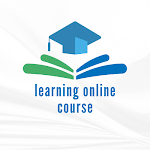JCI Medication Management and Use Certificate Course
 |
FREE UDEMY COURSE
Description
Medications are a critical component of the care provided to patients and are used for diagnostic, symptomatic,
preventive, curative, and palliative treatment and management of diseases and conditions. A medication
system that supports optimal medication management must include processes that support safe and effective
medication use. Safe, effective medication use involves a multidisciplinary, coordinated effort of health care
practitioners applying the principles of process design, implementation, and improvement to all aspects of
the medication management process, which includes the selecting, procuring, storing, ordering/prescribing,
transcribing, distributing, preparing, dispensing, administering, documenting, and monitoring of medication
therapies. Although health care practitioners’ roles in medication management vary greatly from one country
to another, sound medication management processes for patient safety are universal, and must be supported
by scientific evidence and guidance for prescribers such as in the development of a program for antibiotic
stewardship and the use of accepted medication practice guidelines.
Note: Medication is defined as any prescription medications; sample medications; herbal remedies; vitamins;
nutraceuticals; over-the-counter drugs; vaccines; diagnostic and contrast agents used on or administered to
persons to diagnose, to treat, or to prevent disease or other abnormal conditions; radioactive medications;
respiratory therapy treatments; parenteral nutrition; blood derivatives; and intravenous solutions (plain, with
electrolytes and/or drugs), as well as solutions administered/used on the patient by the surgical team during
surgical/invasive procedures.
Note: Some standards require the hospital to have a written policy, procedure, program, or other written document for specific processes. Those standards are indicated by a ? icon after the standard text.



.png)
